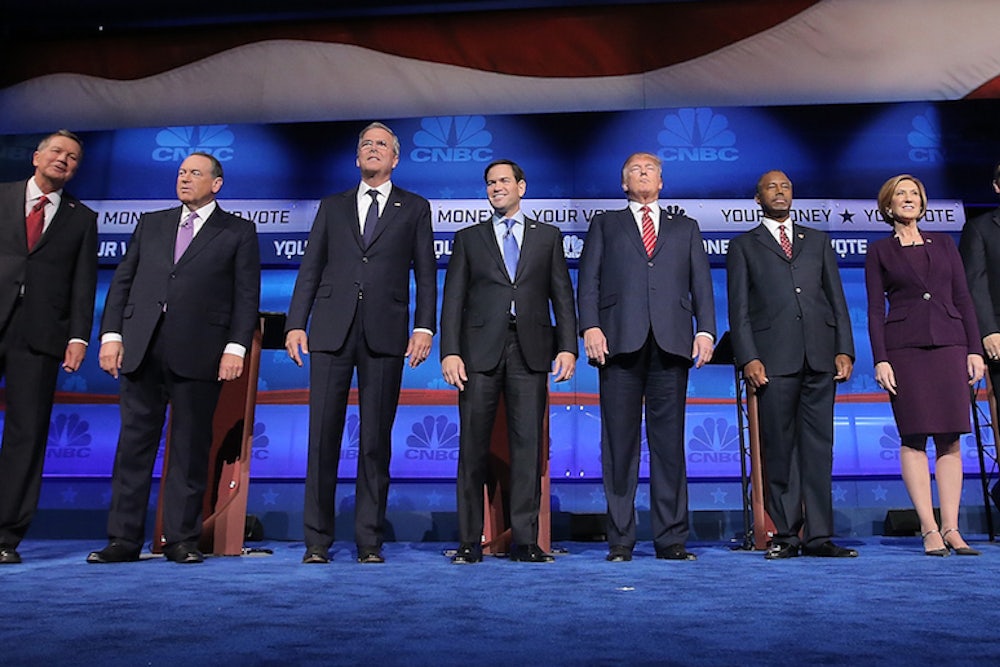The big winners of the third Republican debate are surely CNN and Fox News, which come out looking much better than CNBC. The journalists on CNBC repeatedly paraded their economic ignorance. To understand the problem with the network’s coverage, it’s worth keeping in mind that CNBC is a business news channel, which is very different from being an economic news channel. As a business news channel, CNBC caters to those who own stocks and are interested in investments, but that’s not quite the same as understanding economic policy.
In the run-up to the main debate, CNBC host Lawrence Kudlow said that Trump’s proposed massive corporate tax cuts were solid policy ideas. Challenged to justify the huge loss in tax revenue from these cuts, Kudlow said they’d pay for themselves in five to ten years. This is sheer supply side fantasy.
Another telling moment came in the undercard debate, when Rick Santelli used an exchange with George Pataki to call for higher interest rates. As transcribed by The Washington Post, the exchange went like this:
SANTELLI: Listen, America's central bank, the Federal Reserve, they've kept interest rates near zero since the 2008 financial crisis.
And, by the way, they had a meeting today, you think they raised rates?
No.
Shocking, isn't it?
PATAKI: Not at all.
SANTELLI: Listen, it's been a rough ride for American savers and retirees, they really rely on this interest income. And it's been a bonanza for the stock market, a bonanza.
And for investors that like the little bit more risk, it's been a bonanza for them as well.
So I guess what I'm asking is, do you think this policy is fair and do you support it?
PATAKI: No, I don't support it.
The key point to remember is that when you have a struggling economy, raising interest rates would be a disaster. But Santelli is not thinking in macro-economics—he is just touting a policy that would be good for some of the retirees who watch his show. And Pataki went along with this economic illiteracy. This exchange is a good example of how bad journalism drives bad policy debates.
